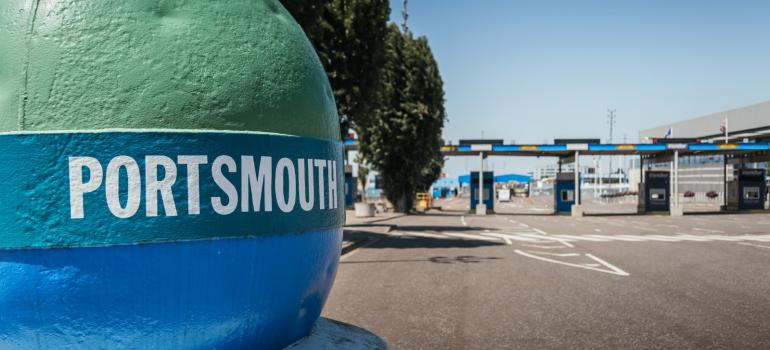6 January 2020
Shore power, wind turbines and solar panels are just some of the major projects Portsmouth International Port is proposing as part of its Air Quality Strategy to reduce emissions and become the UK’s first zero emission port.
Outlining its commitment in a letter to the Department for Transport (DfT), the port has listed a range of initiatives it plans to launch subject to funding approval for a capital spend of over £10m and a successful government grant application.
Ambitions are for the port to be carbon neutral by 2030, and contribute towards the national clean maritime plan for the UK to have net zero shipping emissions by 2050.
Portsmouth’s strategy includes ways to tackle emissions both marine and land side, and also support the port’s cruise and ferry customers to improve their sustainability goals.
The most significant initiative is to potentially offer shore power as an alternative energy source for ships when they visit Portsmouth. Ships with the ability to use shore side power can plug-in to the port’s electrical supply, this means they do not have to run their engines and burn fuel.
Wind turbines and solar panels across the site will contribute towards plans to be energy self-sufficient by 2030. This initiative will be complemented by criteria which mandates that to operate on site contractors have to use low emission vehicles. Contractors will be given advance notice that their vehicles have to comply with Euro 6 standard, which is a European standard for cleaner diesel engines.
The port’s proposals are not in isolation. Major customer Brittany Ferries welcomes the first Liquefied Natural Gas (LNG) powered channel ferry, Honfleur, in 2020 followed by a further two new green ships. LNG provides cleaner, greener fuel and can reduce emissions by up to 25%.
Other dynamic ideas to pursue also includes the creation of a living wall, which early indications show this form of planting can be effective in absorbing harmful particles and pollutants.
In order to understand the impact of the initiatives, the port will work with Southampton’s Solent University to interrogate the data accurately to understand emission levels. To fund this advanced air monitoring technology, the port has made a government application through research body MarRI-UK and has successfully passed stage one of the bid process.
The port has recently also received funding to install a freight management system for its commercial shipping operator, Portico. Automation will process hauliers efficiently when collecting cargo and means there should be no vehicle idling on site.
Mike Sellers, Portsmouth International Port’s director said: “These proposals are innovative, but we need to take bold action if we’re to meet our goal to be the first zero emission port.
“We’re serious about this ambition, which is why we want to take a radical step with our monitoring data and be as open and transparent as possible.
“For our actions to work they need to be credible and we’re happy to be a test bed for any government trial, or supply data that helps to understand what initiatives are having an impact.
“These proposals do require funding but the benefits would be significant for the city, and also provide an opportunity to share our approach with the wider port industry.”
Cllr Gerald Vernon-Jackson, Leader of Portsmouth City Council said: “We are facing a climate emergency and as a city we have to take responsibility and direct action to combat this critical issue.
“Portsmouth International Port is the UK’s most successful municipal port and we now want to become one of the first zero emission ports.
“We have a range of environmental initiatives to improve sustainability and air quality across the city. The port’s proactive steps demonstrate the seriousness and commitment there is to tackle this issue. These proposals will be considered as part of the capital bids.”


